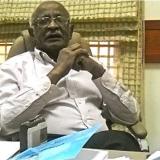Sudan
Country Profile
On April 15, fighting between the Sudanese Armed Forces and Rapid Support Forces resulted in a protracted conflict across the country and reports of serious and widespread abuses. Based on a careful analysis of the law and available facts, on December 6, U.S. Secretary of State Antony Blinken determined that members of the Sudanese Armed Forces and the Rapid Support Forces committed war crimes in Sudan. The Secretary also determined that members of the Rapid Support Forces and allied militias committed crimes against humanity and ethnic cleansing. As of October, UN and international media reported more than 10,500 civilian deaths. Although the conflict originated in Khartoum, the fighting quickly spread into Darfur, Blue Nile, and South Kordofan states (the Two Areas), and eastern Sudan, and rampant abuses were reported. As of year’s end, fighting between Sudanese Armed Forces and Rapid Support Forces continued to intensify and spread to new areas of the country.
Significant human rights issues included credible reports of: unlawful or arbitrary killings, including extrajudicial killings; enforced disappearance; cruel, inhuman, or degrading treatment or punishment by the government; harsh and life-threatening prison conditions; arbitrary arrest or detention; political prisoners or detainees; arbitrary or unlawful interference with privacy; serious abuses in a conflict, including unlawful or widespread civilian deaths or harm; serious restrictions on freedom of expression and media freedom, including violence and threats of violence against journalists, unjustified arrests and prosecutions of journalists, and censorship; serious restrictions on internet freedom; substantial interference with freedom of peaceful assembly and freedom of association, including overly restrictive laws on the organization, funding, or operation of nongovernmental and civil society organizations; inability of citizens to change their government peacefully through free and fair elections; serious government corruption; serious government restrictions on or harassment of domestic and international human rights organizations; extensive gender-based violence, including domestic and intimate partner violence, sexual violence, child, early and forced marriage, female genital mutilation/cutting, and other forms of such sexual violence; crimes involving violence or threats of violence targeting members of national/racial/ethnic groups or Indigenous peoples such as the Massalit; laws criminalizing consensual same-sex sexual conduct between adults, which were enforced; crimes involving violence or threats of violence targeting lesbian, gay, bisexual, transgender, queer, or intersex persons; and prohibiting independent trade unions or significant or systematic restrictions on workers’ freedom of association.
The government did not take credible steps to identify and punish officials who may have committed human rights abuses.
Militias affiliated with the Rapid Support Forces reportedly continued to commit killings, abductions, rape, sexual slavery, and other physical abuses and mistreatment of civilians in Darfur and across the country. Arab militias allied with the Rapid Support Forces conducted unlawful killings of ethnic Massalit civilians as they fled violence in West Darfur. Local militias maintained substantial influence and acted with widespread impunity. Intercommunal violence originating from land-tenure disputes and resource scarcity continued to result in civilian deaths, particularly in East, South, and North Darfur, as well as the Two Areas. There were also human rights abuses reported in Abyei, a region that Sudan and South Sudan both claimed. These abuses generally stemmed from local clashes regarding cattle and land between the Ngok Dinka and Misseriya Indigenous groups. Reports were difficult to verify due to access impediments. Weak rule of law persisted in Darfur, where fighting between the Sudanese Armed Forces and Rapid Support Forces, banditry, criminality, and intercommunal violence were the main causes of insecurity.
Cases
Released
|
Image

Amin Mekki Medani |
Image

|
Image

|
Image

|
Image

|
For Further Reference
Full U.S. Department of State Human Rights Country Report
U.S. Department of State International Religious Freedom Country Report
U.S. Department of State Trafficking in Persons Report Country Narrative
Report of the Working Group on the Universal Periodic Review
Human Rights Watch World Report Country Chapter
Amnesty International Annual Report Country Chapter
Freedom House Freedom in the World Country Report